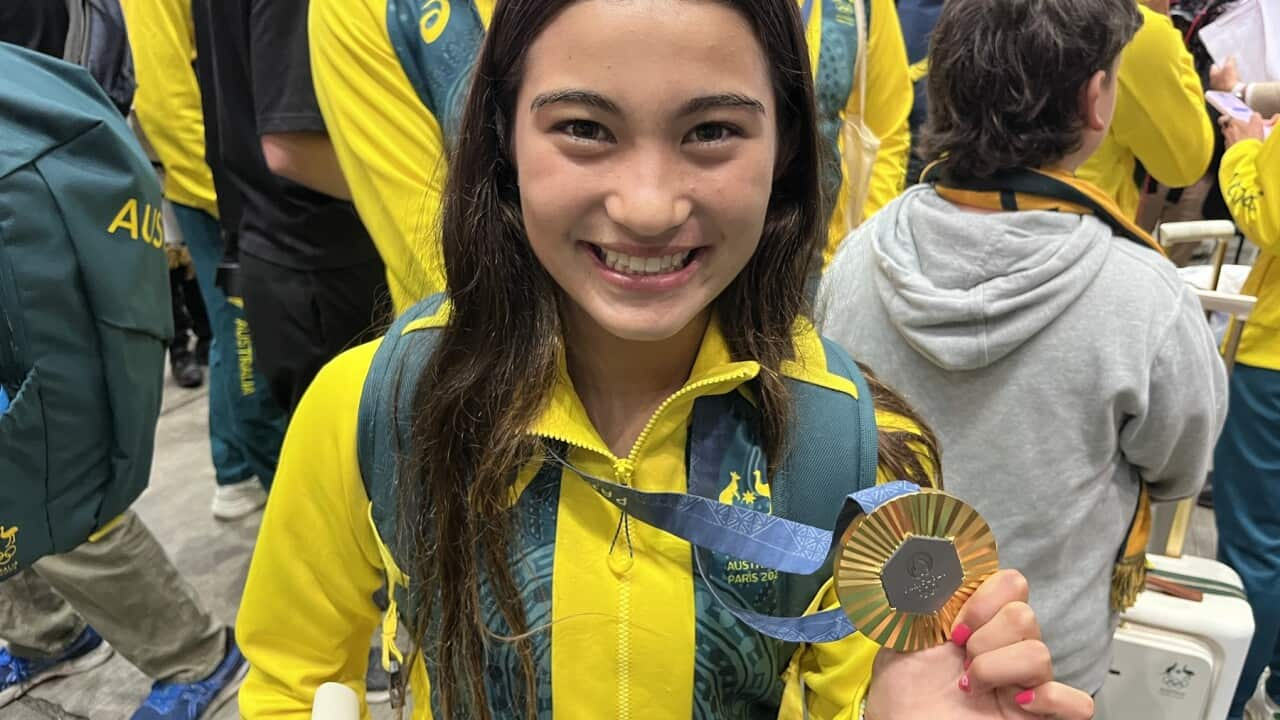TRANSCRIPT:
Arisa Trew started skateboarding at the age of seven, after switching from surfing.
At fourteen, she went to the Olympics.
Arisa fell on her first run, setting her back on the score board - but she was not deterred.
"My first run, I just fell on a basic trick, which was I was landing it every try in the practice and in the other run. So I knew that I was just, it's a one time thing that I would fall on it, so I was fine after that. And I was just learned that other runs no matter what, and I was just going to go full out on them because I didn't care. It was all or nothing. And then I was just so excited when I landed my second run, because I had a rundown and they gave me some more confidence. And then on the third run, I just knew that if I wanted to secure my spot in the podium because I was in third, so somebody could bump me out pretty easily, I had to land a solid run. And then when I did and I went into, first, I knew that I'd made the podium for sure. It was just to see where I'd score in it."
Watching with bated breath was Arisa's mum, Aiko - who was among the 6,400 people in the stadium.
"It was hard to believe. My heart was pounding because she failed her first run. I could see the coach Trevor’s reaction on the screen, and I was feeling exactly the same. The moment she got it for such a relief. Its so hard to believe still."
Arisa says she doesn't regret the decision to switch to skateboarding - or her life choices since then, which include enrolling in a specialist school to allow for more time to skateboard.
The Level Up academy in the Gold Coast is run by Trev Ward, a former top 10 professional skater.
Students study in the morning [[via a home schooling program]] and skate in the afternoon.
Arisa says she believes the arrangement has brought out the best in her.
"Well, I just skate every single day because it's fun and it's my favourite thing to do. But just training and skating twice a day - at school and then after school; and just doing what I love the most. So that's really all I did, and just having fun with my friends and then my coach helping me learning tricks."
Arisa has developed a reputation for breaking boundaries with her skateboarding moves - becoming the first female skateboarder to land what's called a 900 in May.
The move - made famous by Tony Hawk - involves two-and-a-half rotations in the air.
Less than a year earlier, Arisa made history as the first female skateboarder to land a 720, another Tony Hawk manoeuvre, which consists of two mid-air rotations.
She is currently ranked number four internationally in the women's park category, based on the World Skateboarding Ranking [[maintained by governing body, World Skate.]]
Her mother says she and her husband, Simon, always hoped Arisa would achieve gold medal success, but they never applied too much pressure.
"Simon and I have always encouraged her to have fun, and to enjoy it each time, so we weren’t too concerned about the pressures. While the focus was on making sure she was not getting injured or get sick, we went about our lives as normal as possible, making sure that she had as much time as possible to play with her friends."
Also, on the Olympic podium were athletes with Japanese mothers.
Japan's 15-year-old Hiraki Cocona took silver; and British-Japanese 16-year-old Sky Brown won the bronze.
Aiko says she has met with one of the mothers - and they share a common approach.
"Perhaps cheerfulness? Mums who work hard to support their daughter."
There has been little time for rest, with Arisa turning her focus to upcoming competitions.
"I have a few more comps coming up, so I'm just hoping to learn some really good runs there and learn some new tricks as well and just keep having fun and doing my best."
She says one of the things she is savouring after the emotional high of the Olympics - is getting a pet duck.
"Just before I left for the Olympics, I was asking my parents if I got podium, could I get a pet duck? And they were like: no, only if you get gold. And I was like: oh, please, just if it's podium. And they're like: no, only if it's gold - because I don't think they wanted a pet duck. But then I think they still thought that I could, maybe that would push me to get gold. When I used to want two pet ducks when I was younger, I wanted to name it cheese and quackers."













